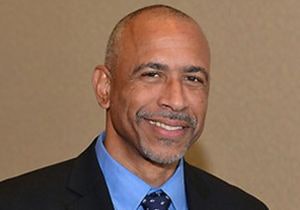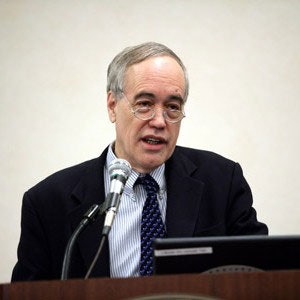The Democratic National Convention kicked off Monday evening with an unconventional virtual opening night program, featuring former First Lady Michelle Obama, Sen. Bernie Sanders, Sen. Amy Klobuchar and other major names endorsing former Vice President Joe Biden alongside his running mate, Sen. Kamala Harris.
While higher education – and particularly college affordability – was a hot topic for Democratic candidates on the debate stage in the primaries, education got little play the first night of the convention, with one reference to student loan debt by former presidential candidate Andrew Yang and a mention of the school-to-prison pipeline by Sanders.
As colleges struggle to figure out reopening plans, Dr. Pedro Noguera, dean of University of Southern California’s school of education, thinks it’s a “mistake” if higher education is left out of the conversation.
 Dr. Pedro Noguera
Dr. Pedro NogueraEven though the Democratic Party sees educators as a part of their base, “my hunch is that it won’t be a focus,” he said. “All around the country, we’re talking about getting schools up and running … It’s a big story. But I think that education too often doesn’t get the attention it needs and deserves. Conventions are not a time when politicians like to talk about complex issues.”
But Dr. Gary Orfield speculates higher education is bound to come up as the convention continues. He’s the co-director of the Civil Rights Project and a professor of education, law, political science and urban planning at the University of California Los Angeles.
Orfield expects some discussion about tackling student loan debt and college affordability more broadly, as well as expanding support for state governments as the “funders of higher education, which are in desperate straits right now.”
The importance of higher education policy is “kind of a consensus” in the Democratic Party platform, Orfield said. “I think we’ll hear a lot about it. I think we’ll hear a lot about it in the general election campaign particularly.”
 Dr. Gary Orfield
Dr. Gary OrfieldDr. Ravi Perry, who chairs the political science department at Howard University, hopes the Democratic Convention – and a Biden presidency – will not only address higher education but push beyond discussions of economic gaps and structural inequity.
While he thinks those areas deeply “need attention,” he also sees them as the “bread and butter” of higher education policymakers, sometimes to the exclusion of other priorities. He wants to see a focus on curriculum, and specifically mandatory ethnic studies courses, an issue that doesn’t get much political airtime.
“When we talk about higher education, it’s not just about access to higher education,” Perry said. “It’s about when [students] receive that access, what is the content of the education they’re actually getting?”
Pragmatically, curriculum reform is an issue that matters to young people and progressives, he said, who are already fighting for ethnic studies at their institutions. For example, California just passed and signed a bill into law adopting an ethnic studies requirement for California State University campuses.
But on a deeper level, Perry thinks the killing of George Floyd in police custody – and the Black Lives Matter protests that followed – showed the country needs mandatory, quality K-12 and college education on race.
 Dr. Ravi Perry
Dr. Ravi Perry“The American racial and ethnic story really has to become part of our American education mandates and requirements,” he said. “If we do not learn about each other and the diversity that makes up this country – and that really makes up what it means to be an American – we’re going to continue to have these deep-seated skirmishes based on ideology, race and ethnicity, which inherently is based on a level of ignorance.”
And that burden of educating the American public needs to fall on every college’s shoulders as a policy, not just minority-serving institutions like his, he added. “If we limit the study of race and ethnicity to the historically Black colleges and universities, what we’re also saying is the onus on correcting these roles for centuries is somewhat on people of color. And that of course would be egregious.”
He’s hopeful that Harris will be particularly sensitive to the need for ethnic studies curriculums, both as a senator for California, a state “leading the way,” and as an alum of his own department, which teaches “American politics through the lens of the Black experience.”
Orfield also hopes Harris will draw college-age voters, and particularly students at HBCUs given her Howard University education. This is during a “crazy election year,” he said, when colleges will need to work extra hard to get students to vote amid the pandemic, especially the underresourced students that HBCUs often serve.
“Minority serving institutions will have a special role to play in all of this,” he added.
He also thinks Harris will bolster Biden’s existing higher education policies on college affordability, like tuition-free two-year college and tuition-free four-year college for families with incomes below $125,000.
“The real question is how far can we go?” he said. “Those are going to be hard choices.”
Sara Weissman can be reached at [email protected].



















